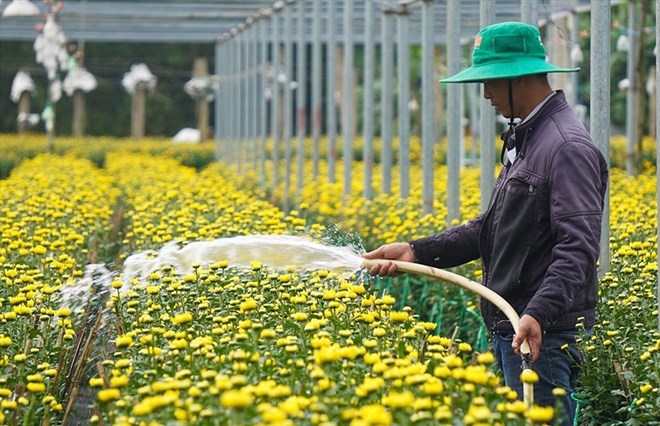The Da Nang City Party Committee has just issued a plan to study, disseminate and propagate Directive No. 37-CT/TW dated July 10, 2024 of the Central Party Secretariat on innovation in vocational training for rural workers to meet the requirements of industrialization and modernization of agriculture and rural areas.
The contents of research, dissemination and propaganda include raising awareness of the role, position and importance of vocational training for rural workers in socio-economic development, new rural construction, sustainable poverty reduction, improving people's knowledge and living standards; on the Party's guidelines, policies and laws of the State on vocational training for rural workers and the shift in labor structure and economic structure in the process of industrialization and modernization of agriculture and rural areas.
At the same time, raise awareness of Party committees, Party organizations, authorities and people about the impact of climate change, the impact of the Fourth Industrial Revolution on agricultural economic development, industry structure and production level in rural areas; promote and replicate good models and good examples after vocational training.

Continue to prioritize vocational training for workers who are policy beneficiaries, people with revolutionary contributions, people from poor households, near-poor households, ethnic minorities, and people with disabilities; develop policies to support vocational conversion training for workers, especially rural workers, workers in industrial zones, demobilized soldiers, and healthy elderly people who want to participate in the labor market;
Effectively exploit the opportunities of the Fourth Industrial Revolution; vocational training for rural workers associated with training and fostering to improve digital skills for people, contributing to the development of the digital economy and digital society in rural areas; developing high-quality human resources;
Ensure resources and conditions to improve the quality and effectiveness of vocational training for rural workers; promptly overcome shortcomings and weaknesses; focus on tasks and solutions to adapt to new contexts and situations.










